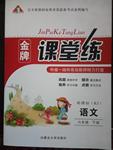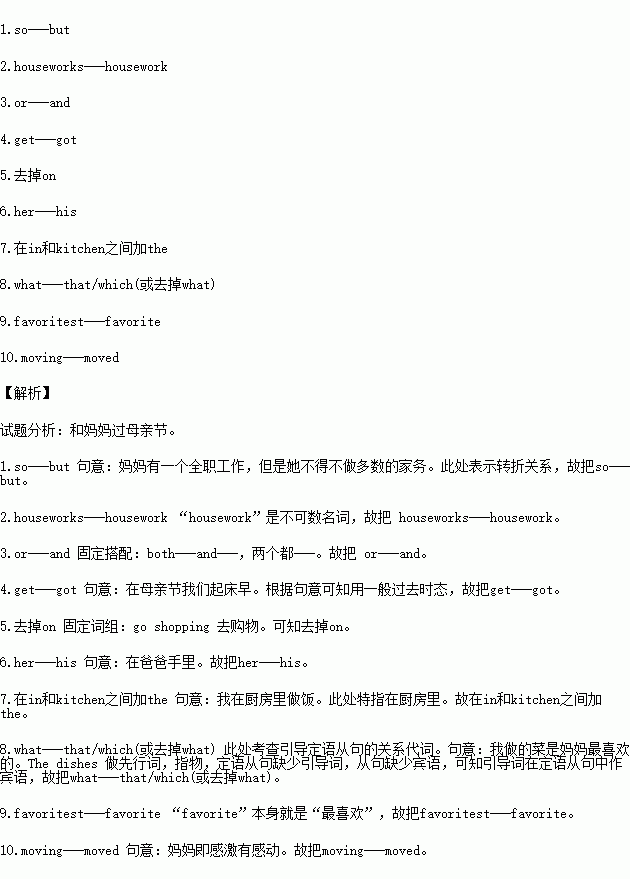题目内容
短文改错
假定英语课上老师要求同桌之间交换修改作文,请你修改你同桌写的以下作文。文中共有10处语言错误,每句中最多有两处。每处错误仅涉及一个单词的增加、删除或修改。
增加:在缺词处加一个漏字符号(∧),并在其下面写出该加的词。
删除:把多余的词用斜线(\)划掉。
修改:在错的词下划一横线,并在该词下面写出修改后的词。
注意:1.每处错误及其修改均仅限一词;
2.只允许修改10处,多者(从第11处起)不计分。
It is Mother’s Day today.Though it’s a western festival, it’s popular in China now.
Mom has a full-time job,so she has to do most of the houseworks.She is a great mother.Both Dad or I planned to do something on Mother’s Day.We get up early in the morning.Dad cleaned the house,and then went on shopping.When he came back,I found a bunch of flowers in her hand.I asked Mom to stay in the sitting room and I cooked in kitchen.The dishes what I cooked were Mom’s favoritiest.At dinner,we said to her,“Happy Mother’s Day!”Mom was grateful and moving.
 金牌课堂练系列答案
金牌课堂练系列答案 三新快车金牌周周练系列答案
三新快车金牌周周练系列答案
